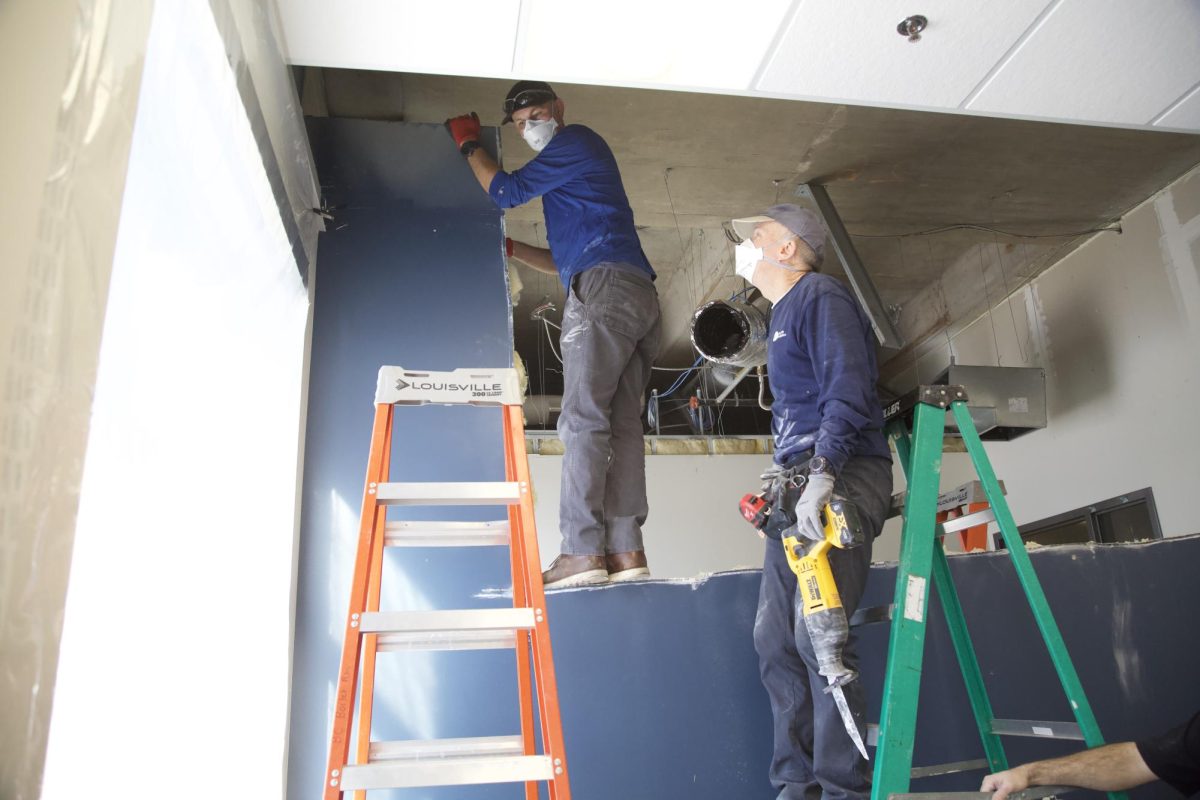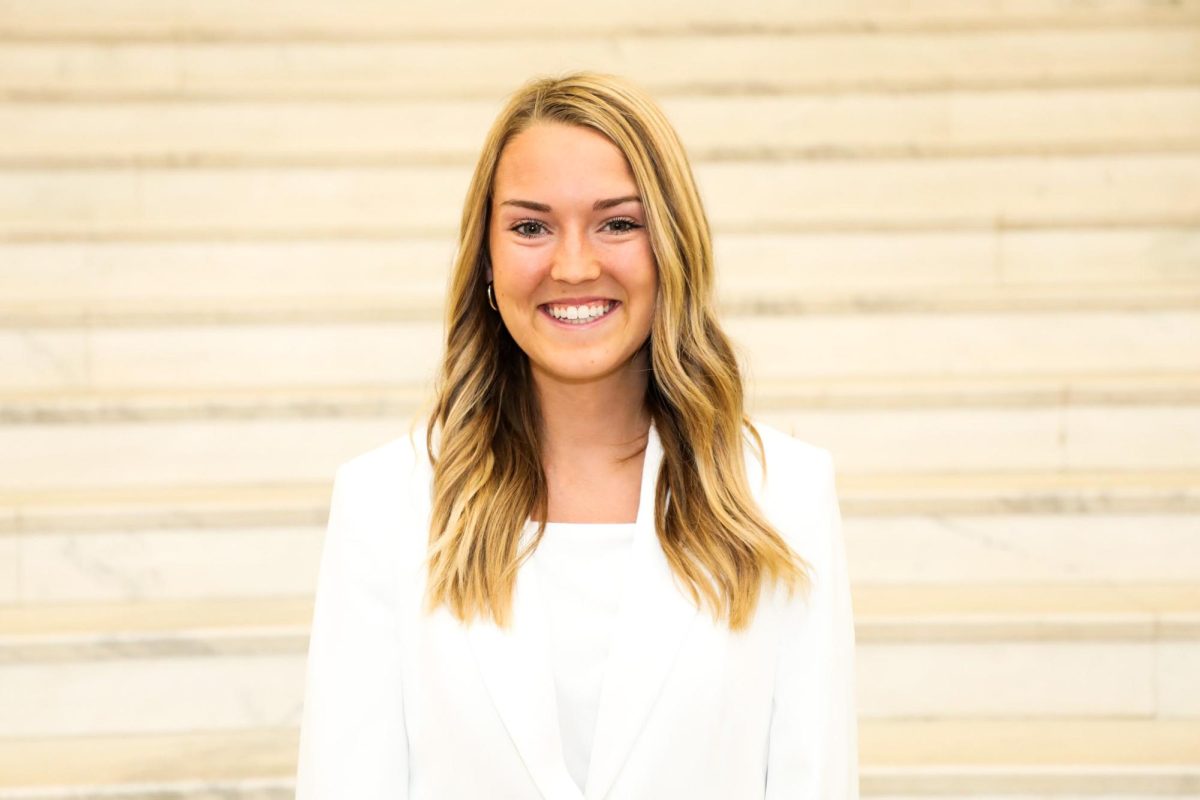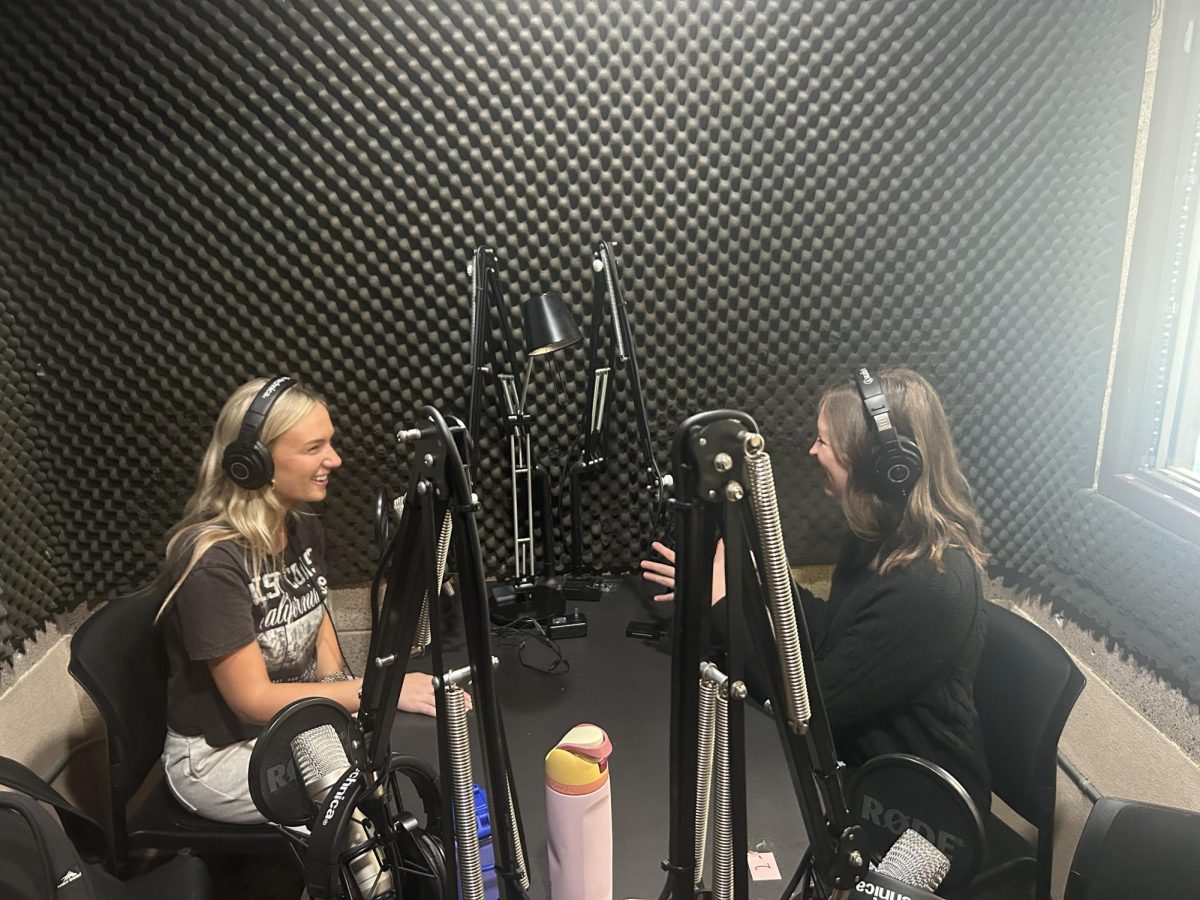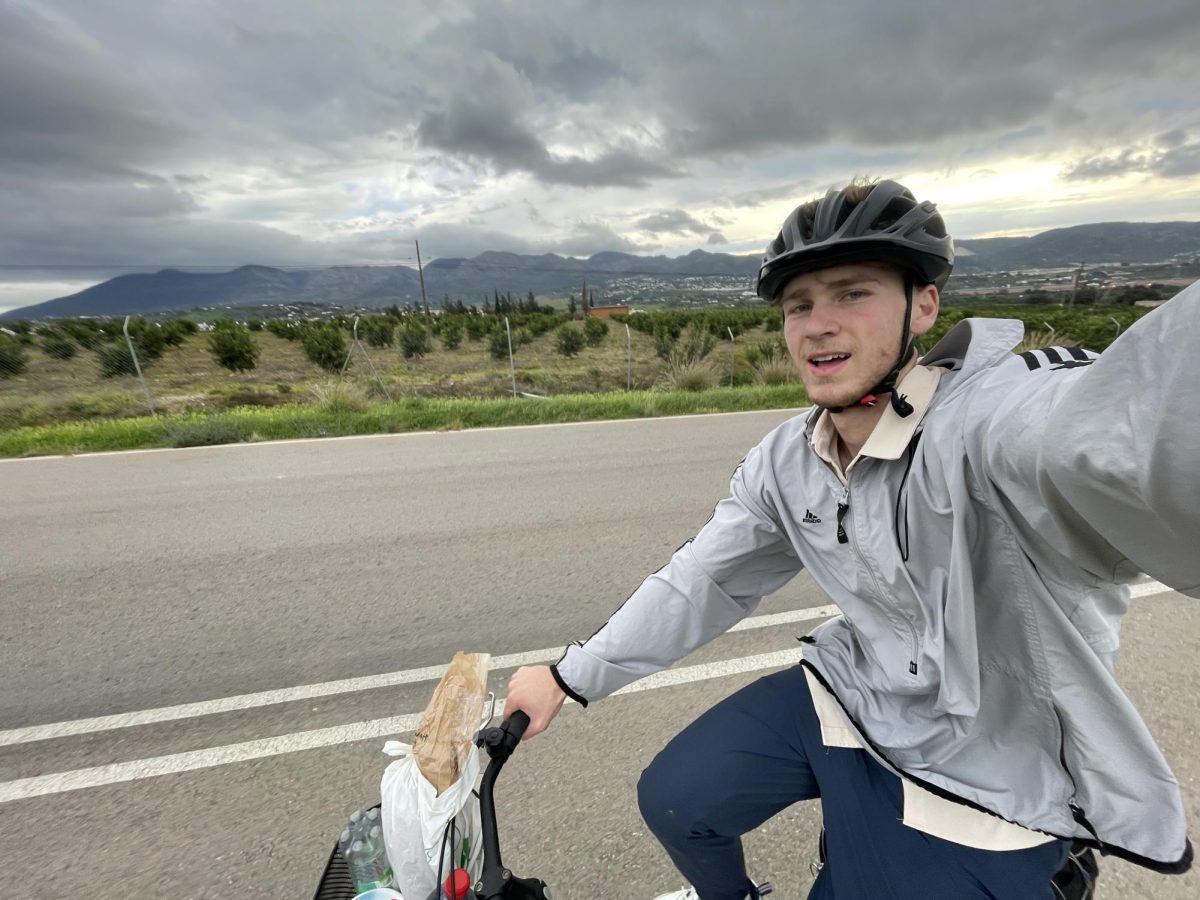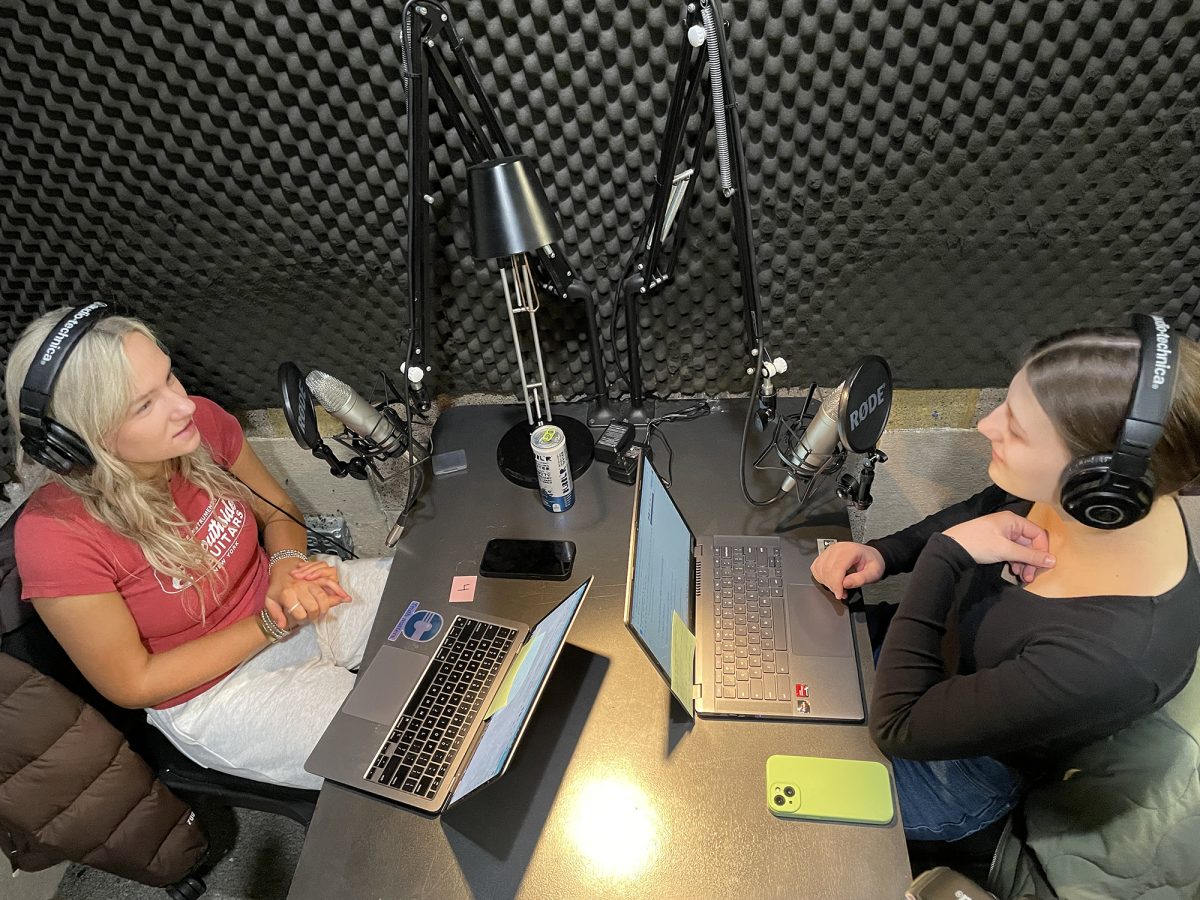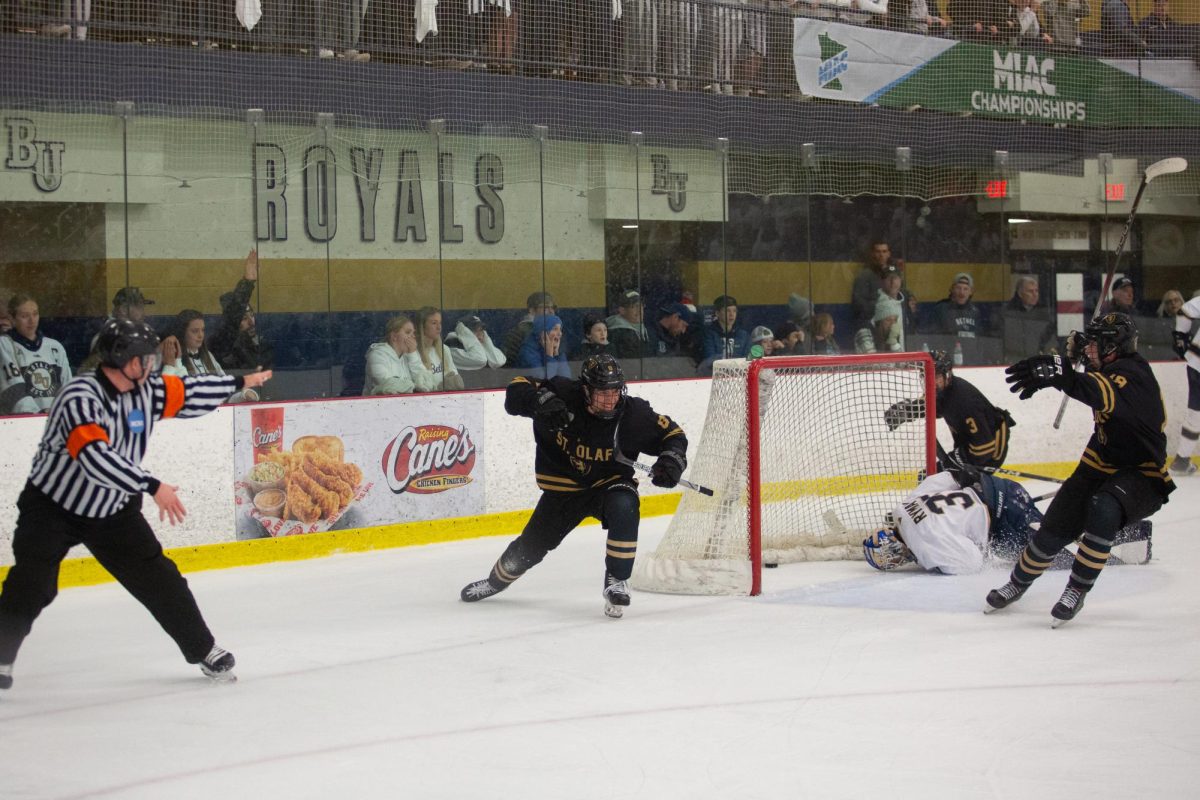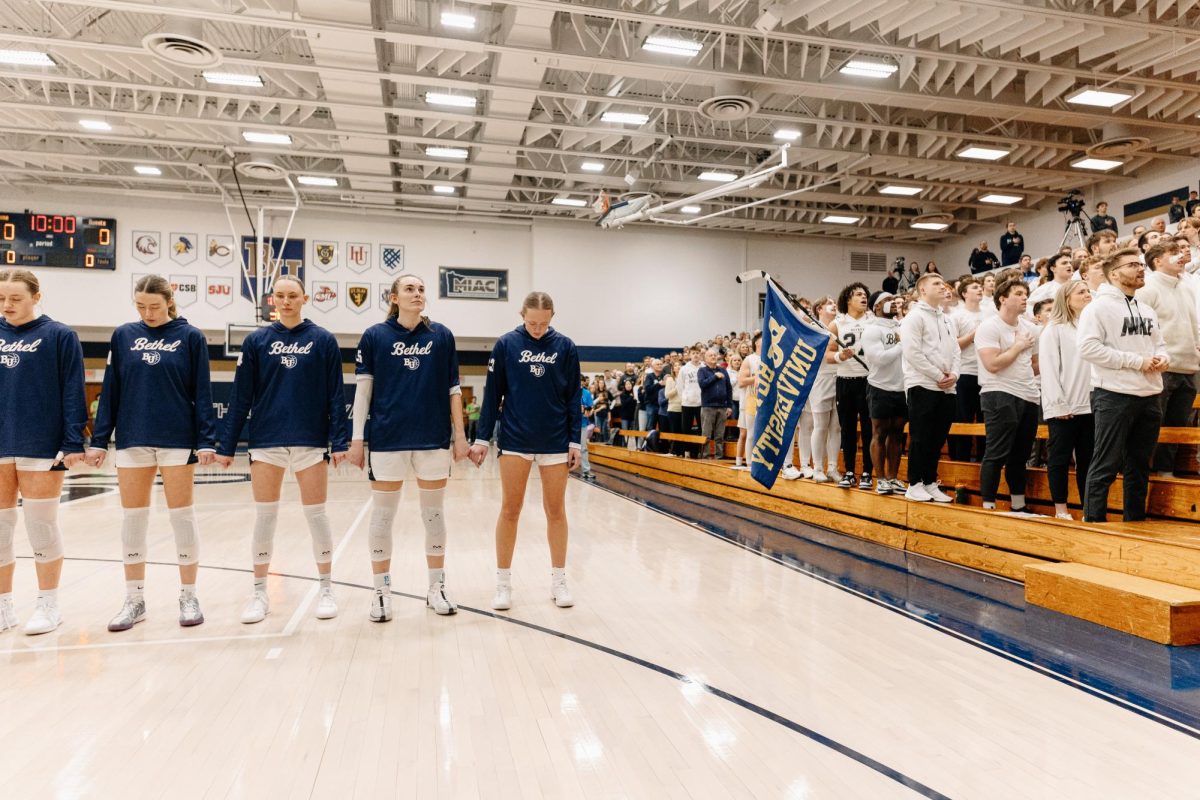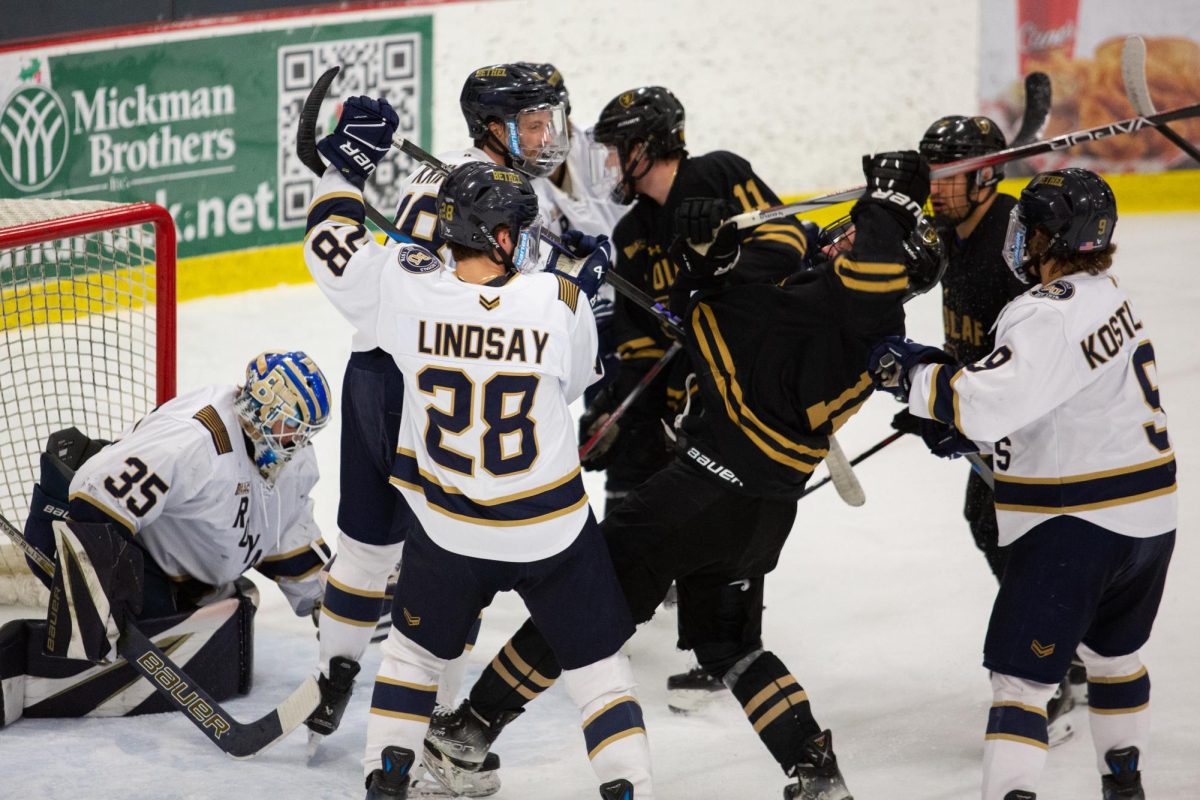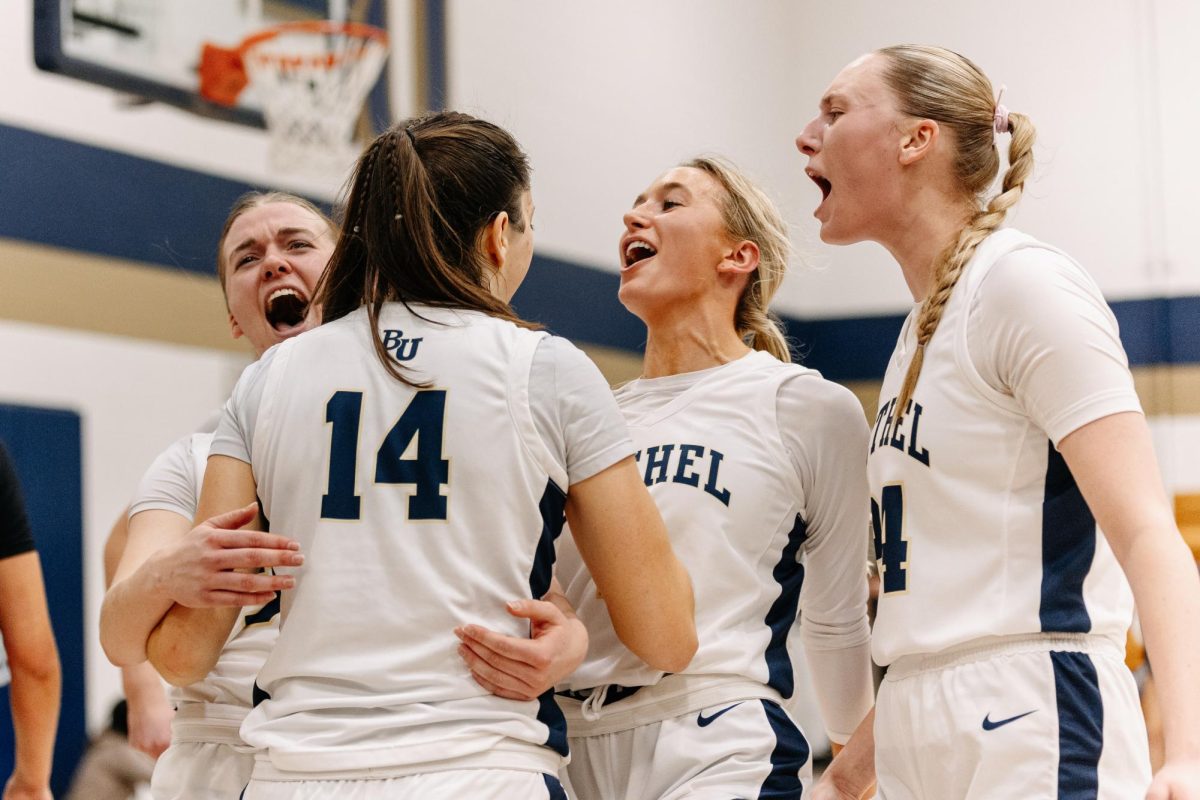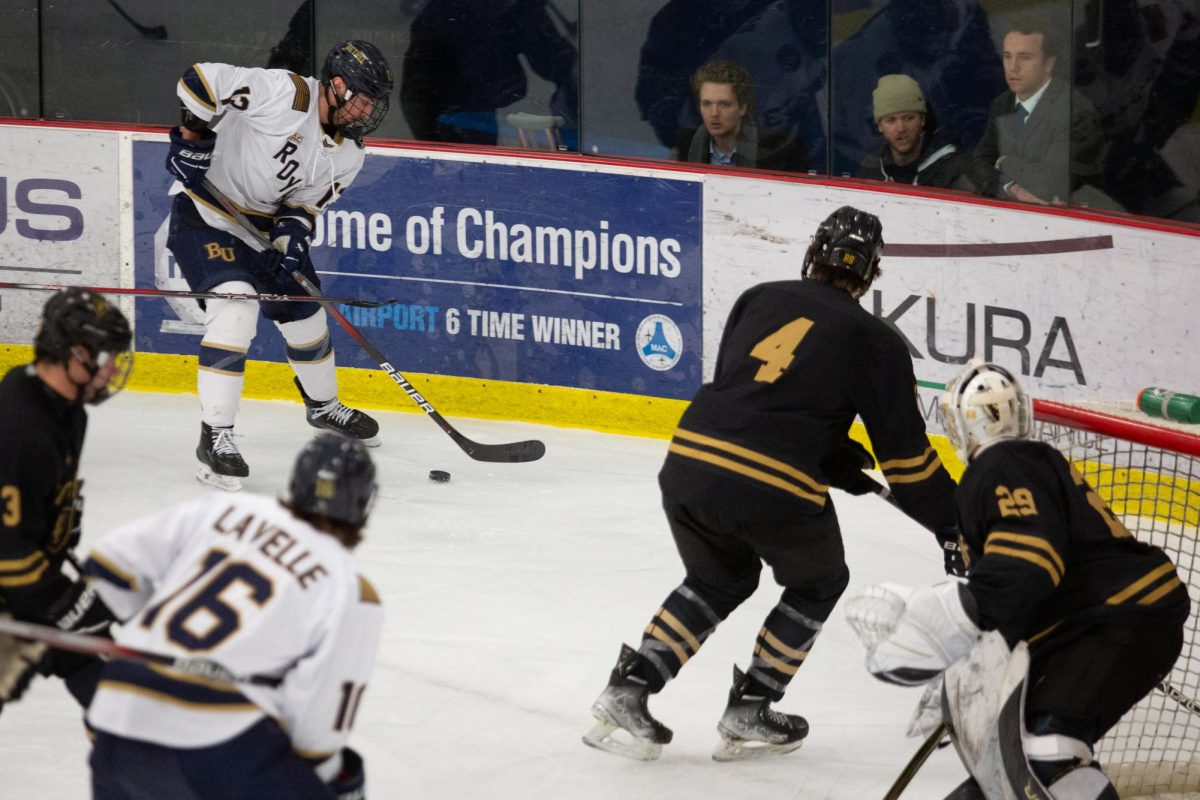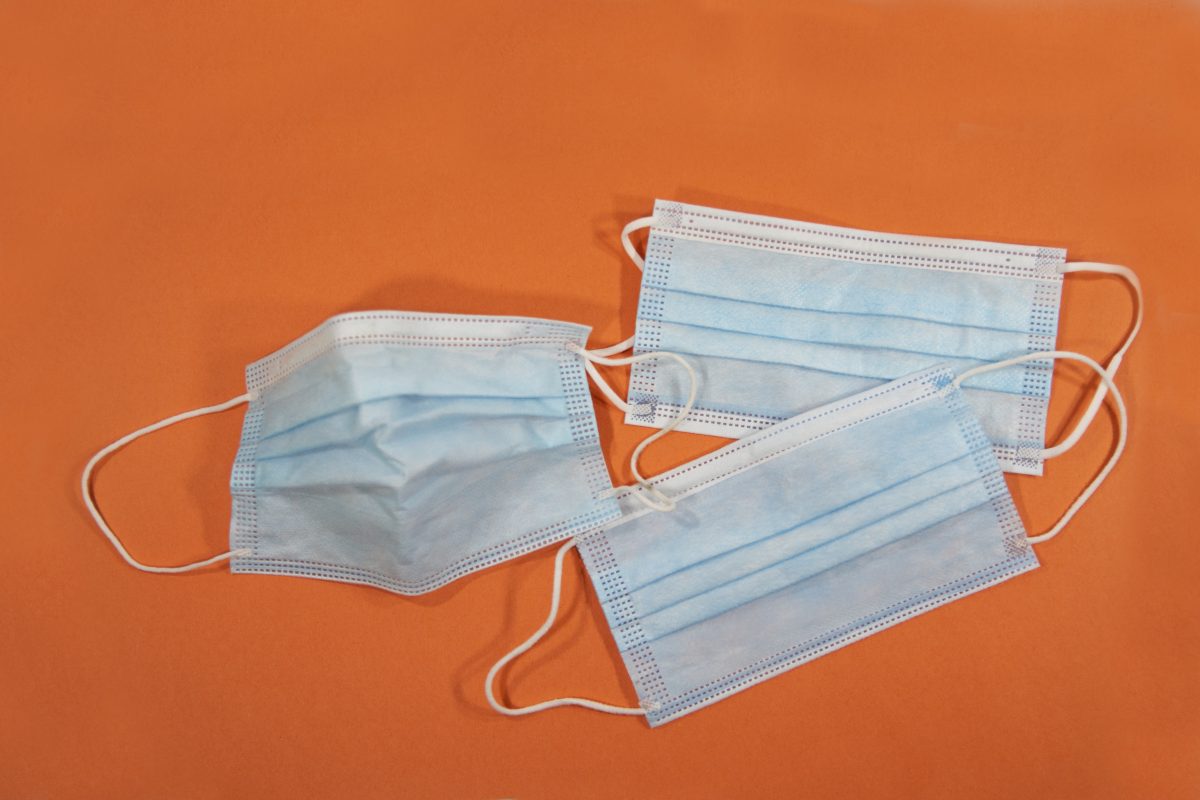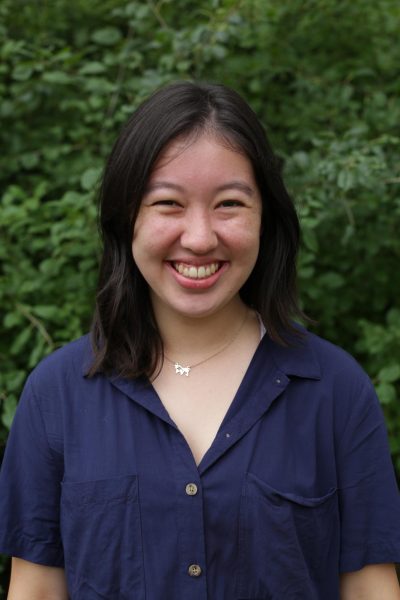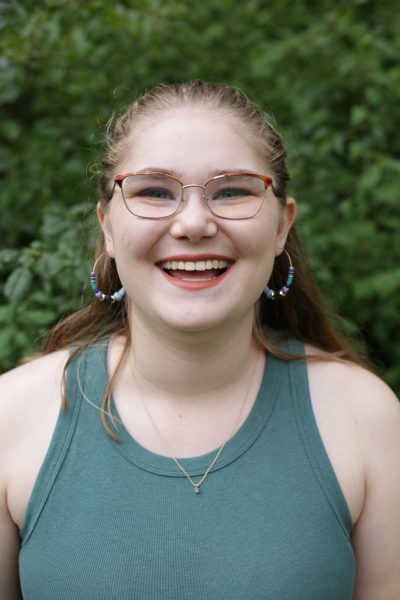Conflicting views on face-covering protocols divide the Bethel community and spur administrative response.
By Rachel Blood and Molly Wilson
Sophomore nursing student Naomi Petersen finished wiping a table in the Monson Dining Center during an April dinner shift. She turned to find two male students wearing masks under their noses standing by a table and talking to a friend. Petersen asked the students to wear their masks properly. With a “yeah, yeah,” Petersen was dismissed. Taking a deep breath, she walked away to tell her manager.
Dean of Student Life Jim Benjamin cites that 108 official documentations of follow-up emails regarding COVID-19 policies were reported in the fall 2020 semester. At this point in the spring 2021 semester, there are 53. Benjamin attributes the lower number to students simply being used to or tired of the pandemic, but the decrease in reports does not necessarily indicate a decrease in protocol breaks.
The majority of the reports stemmed from requests for others to wear a mask in a common area such as a residence hall. Very few reports have occurred within the classroom. Others have included breaking room capacity or visitation rules. Benjamin suspects the reason the fall reports reached a higher number was because the Bethel community was still getting accustomed to the reality of the recent pandemic requirements.
The standard response for most of said reports is a follow-up email clarifying the face covering policy. Repeated incidents might result in a person-to-person interaction to talk about the situation. Oftentimes Benjamin is the one to clarify protocol with that student, try to understand the reasoning behind their actions and remind the student that peers or their families may be immunocompromised.
“The goal of all of that was really to have a reasonable response. We’re trying to do this together,” Benjamin said.
The most frequent concern brought to Student Life comes from a lack of face coverings in the BC and common buildings. Student Life chose to implement a proactive practice of sending out Student Life employees to thank people around the buildings for wearing their masks and giving out gum and mints as a thank you. On occasion, this job also requires asking students to pull their masks up.
“It’s a little dicey because people are drinking or eating,” Benjamin said. “Sometimes, that seems really clear to me, but then we have some students who sit with a drink all day long, and that’s the reason they say they don’t have to wear a mask. We’re asking people to be reasonable.”
The most severe consequence Student Life has thus far had to resort to was a temporary ban on the non-compliant student’s presence in common buildings. Concerned peers reported the student’s refusal to wear a mask to Student Life, and multiple meetings were held. However, the student continued to refuse to wear their mask in common areas.
Benjamin said the student wore a mask properly while in class and while practicing and competing as an athlete, so he gave an appropriate consequence: The student could attend class and practice, but was temporarily suspended from the common buildings.
Benjamin praises staff, faculty and students alike for rising to meet the challenges presented by the pandemic. Bethel’s goal has been to remain open for the entirety of the school year with students on campus and attending in-person classes.
Although many value mask-wearing and participate in keeping others accountable and safe in public spaces in order to keep students on-campus, others argue face coverings are simply not effective.
“Even on the box of surgical masks, it says it does not prevent the spread of COVID-19,” freshman special education major Raine Raderschadt said.
For freshman missional ministries student Lily Owen, the issue rests with a different kind of health: mental.
“The connection piece has been so left out of the conversation,” Owen said. “We have another population that’s really suffering, and they don’t get any say in improving their wellbeing.”
It also concerns Owen that individuals have a tendency to think and speak negatively of peers who choose not to wear masks without knowing the reasoning behind the choice.
“At some point, we have to get back to life. And people need life,” Owen said. “There are some people who need normal life or they won’t continue to live.”
Senior organizational communications major Emma Boley simply wants a choice. She supported masks at the beginning of the pandemic, but following the release of a vaccine, believes people should be able to choose whether to wear a mask based on their comfort level.
For others, the issue with the mask mandate is not a matter of personal choice as much as a matter of the decisions of individual businesses and institutions. PSEO student and biochemistry major Sam Schutz wears his masks in all public spaces as required, but does not believe that a state mandate should be in place. On a trip to Florida, where the mask mandate has been lifted, every business Schutz entered required face coverings.
“That was because of the business owners being responsible,” Schutz said. “I shouldn’t be allowed to walk into some random person’s store not wearing a mask if they want me to. They should have every right to kick me out.”
Senior social studies major Tyler Hayft sat at a table in the Brushaber Commons just before spring break, coffee in one hand and a donut in the other, with his mask around his chin. He said that Heritage Hall Resident Director Emily Allen approached him and asked him to put on his mask, to which he explained that he was eating and socially distanced from those around him. When Allen continued to request that he put on his mask, Hayft grew frustrated because he did not see where he was at fault. Allen reported Hayft to Student Life, who followed their protocol for mask policy violations.
“It was lonely on campus last spring,” Allen said. “Masks are a part of what allowed us to be here safely.”
In response to the increase in face covering conflict, Bethel nursing students Lizzy Carson and David Jankowski, communications student Brook Lorsenson and psychology student Alaina Sandau have worked alongside Professor of Nursing Kristin E. Sandau, PhD, RN to implement a pro-mask campaign across campus.
Carson addressed the reality that those who have access to campus services and technology may easily overlook the hardships the pandemic places on surrounding communities.
“When I look at the demographics of those with underlying health conditions and those with lack of accessibility to resourcing, I am reminded of the privileges which I hold,” Carson said. “With that in mind, I am motivated to wear my mask and continue to do what I can do to stop the spread so that I can better love the Bethel community and our surrounding neighbors too.”
Kristin Sandau’s team created a “creative mask meme” competition in which Bethel community members submitted memes to be judged by President Ross Allen and BSG President Elizabeth Szilagyi. Additionally, colorful posters encouraging community members to continue wearing masks were posted around campus the last week of April.
“My passion is to maximize our in-person experience, which includes safety of others and cooperation with the Minnesota Department of Health,” said President Ross Allen. “[Kristin Sandau’s team] is working on a message to ensure students remain persistent with good mask hygiene as we finish the year, especially given the variants and the increasing impact on younger people.”
CDC guidelines only allow maskless indoor interaction without social distancing for those who are fully vaccinated. There is no way to know who has been vaccinated in any given classroom, coffee shop or dorm.
“Honestly, to see people refuse to mask or respect protocols has been painful to see and dangerous for those of us who work in healthcare,” Kristin Sandau, who worked 30 years as a hospital nurse, said. “For us, it feels like a disregard for vulnerable folks and under-appreciation of how fortunate we are to actually have masks. We can’t drop our guard too early before more are vaccinated.”
Kristin Sandau cited Kaiser Health’s report that more than 3600 U.S. health care workers died of COVID-19 within the first year of the pandemic.
Another nursing student spent the summer of 2020 working in the ICU. She has been granted anonymity due to strict rules from hospital organizations regarding publicizing information about employee experiences.
“It can be difficult to really understand the severity of a situation like COVID-19 unless it’s staring you right in the face,” she said. “I watched as COVID put the lives of pregnant mothers, healthy middle-aged adults and so many more at risk. We are all tired of wearing a mask, but they are all exhausted from fighting day in and day out on the frontlines. We all have a part to play in winning this battle against COVID-19.”
Other Bethel community members who feel strongly that masks remain necessary include new Provost Robin Rylaarsdam, who also holds a Doctorate in Molecular Biology. At Bethel, she has seen noncompliance with face-covering protocols that she attributes to a combination of warm weather and COVID-19 fatigue.
While she thinks face covering protocols may still be in place come fall, Rylaarsdam expects that social-distancing guidelines may loosen significantly.
A common argument made by those opposed to the mask mandate is that no peer-reviewed studies exist proving the effectiveness of masks. Rylaarsdam points out that a peer-reviewed study only a year after the virus discovery would be impossible. Instead she points to the public health outcomes of countries who implemented mask mandates early.
“We are the wealthiest country on earth, and, through our collective actions, did not protect our citizens,” Rylaarsdam said. “I don’t know if we’ve had the worst effects of the pandemic, but we certainly have not done it best. Mask-wearing and its contention here is part of it.”
Rylaarsdam believes wearing masks for the safety of those around us is a double responsibility: one as citizens and one as followers of Christ.
Petersen continues to see students in the DC neglecting masks and social distancing protocols. Encouraging mask-wearing, she cites her trust of scientists specializing in the field of disease control and knowing that COVID-19 spreads through droplets that are significantly decreased by wearing a mask.
“While [masks] are not a perfect solution, they do far better than absolutely nothing,” she said.


